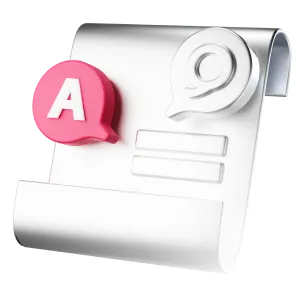Question: I think my car has air in the fuel line and it won’t start. What should I do? Is this going to cause car issues?
What to do if there’s air in your fuel line
You’ll need to bleed out any air in your diesel fuel system so the gas in your tank can flow into the cylinder and your car can start. Depending on your engine, this can be a fairly simple process for the home mechanic—but if you’re inexperienced working with engines or you’re uncomfortable working with fuel, take your vehicle to a trusted repair shop.
If you’d like to try bleeding your vehicle’s fuel line, here are the steps you should follow:
- Check to see if your fuel filter has a bleeder screw. If it does, place a rag beneath the screw, then loosen it using a wrench or bleeder screw key. You should see a mix of air and fuel emerge from the filter. Once the fuel starts flowing out without air bubbles, you can tighten the screw again.
- If your filter doesn’t have a bleeder screw, or if using this method doesn’t get the air out of your fuel lines, you’ll need to locate your engine’s fuel injectors. These are usually connected to the gas line.
- Start with the cylinder closest to your fuel pump. Slowly and carefully loosen the injectors from the fuel line using a wrench or socket. Once it’s loose, crank the engine for a few seconds.
- When you see fuel flowing steadily without any air bubbles, you can reconnect your fuel line.
- Repeat this process for every other cylinder, working from the closest to the fuel pump to the furthest from the fuel pump.
Once you’ve completed this process, try starting your engine once again. If your engine starts, allow your engine to run for a few minutes to check for any problems with fuel flow, engine power fluctuations, or rough idling. This may indicate other issues with your fuel line, such as further damage or leaks.
Fix the root of the problem: How air gets into your fuel line
Some of the most common causes of an air leak in your fuel line include:
- A faulty fuel pump: If your fuel pump is clogged, damaged, or otherwise malfunctioning, air could be entering your fuel line at the pump. A starved fuel pump won’t function properly, so be sure to refuel your car’s injector body between injections.
- A broken or leaky seal: A failed injector combustion seal or a leak between your fuel tank and the transfer pump can allow air bleed to occur slowly. Check for a tight air lock in areas that may have a damaged o-ring or broken seal, such as the filter housing and the injection pump, to find the source of air in your diesel fuel lines.
- Over-pressurization of oil: For some injectors, the issue may stem from improper fuel pressure inside the stator housing. This high pressure can cause big problems for the injector pump, leading to air bubbles in your fuel supply.
Taking your car in for regular maintenance can prevent these issues from developing and/or worsening over time.
Does air in the fuel lines cause permanent damage?
Typically, air in your vehicle’s fuel lines won’t cause permanent damage, especially if you catch it early and fix the root of the issue ASAP. However, if left unchecked, issues with your vehicle’s fuel lines can cause serious problems for your diesel engine.

Liz Jenson is an insurance writer who specializes in general automotive and insurance topics. Liz’s mission is to produce informative and useful content to help car owners make smart choices when buying cars and car insurance. Since joining Jerry in 2021, Liz has written nearly 4,000 long- and short-form articles on topics including state-specific insurance recommendations, common car insurance questions, and deep dives into vehicle model details. Before they came to Jerry, Liz was a full-time student at Indiana University, Bloomington working on a double major in English and French.

Kevin Berry is the Senior Director of Content at Jerry and has been working in the digital content space since 2011 across the car insurance/repair, personal finance, travel and sports industries. Prior to Jerry, Kevin was a content team lead at NerdWallet overseeing the Multimedia Production and Travel Rewards teams. Previously, he worked for NBC Sports, Comcast Cable and Nike. He has a Master`s Degree from Arkansas State and a Bachelor`s from Oregon State University.






